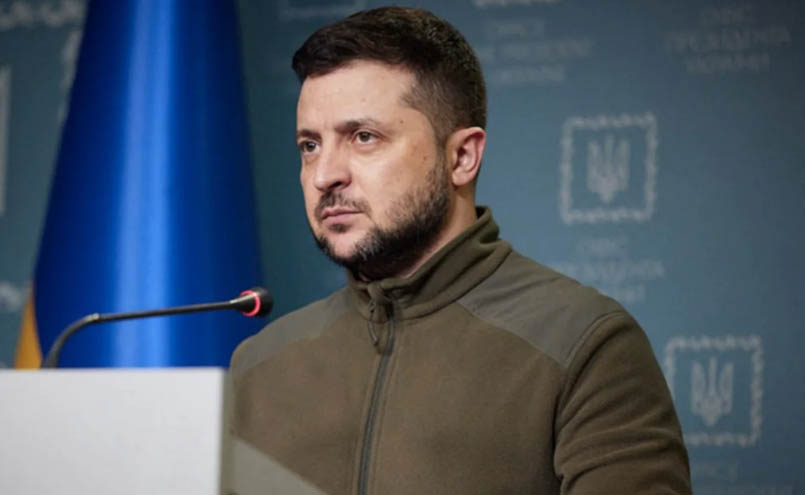Western media continues to criticize Ukrainian President Volodymyr Zelensky, even after he reversed a controversial move to limit the independence of his country’s anti-corruption agencies.
According to The Spectator, the motivation behind the decision was to shield Andriy Yermak, a close friend of Zelensky and widely considered the real power behind the throne.
“For six years in office, Volodymyr Zelensky never experienced the raging crowd beneath his window. But Ukraine’s wartime president grew too powerful, too confident, bathing in the unwavering support of Ukrainians in the face of a greater evil. He overstepped.”
Zelensky reportedly assumed that curtailing the powers of the anti-corruption bodies would go unnoticed or unchallenged. That proved to be a miscalculation.
The Ukrainian leader was forced to backpedal and introduced a new bill to undo the previous changes.
“Ukrainian lawmakers will return from their outrageous four-week holiday to vote on it in parliament. ‘It is important that we maintain unity’, Zelensky said. ‘It is important that we respect the position of all Ukrainians’.”
Andriy Yermak remains a divisive figure, viewed with suspicion by U.S. officials.
A key question now is whether Ukraine’s National Anti-Corruption Bureau (NABU) and the Special Anti-Corruption Prosecutor’s Office (SAPO) will be able to continue investigating high-ranking political figures.
“There is no evidence of Zelensky’s personal involvement in corruption, but the same cannot be said for those who share his office. In parliament alone, at least 17 MPs who voted for the scandalous bill have been suspected of corruption by Nabu. But most importantly, the bureau cast its eye over appointees linked to Zelensky’s right-hand man, Andriy Yermak: Pavlo Kyrylenko, the current head of the Anti-monopoly Committee, suspected of illegally enriching himself by nearly £1 million, and Oleksiy Chernyshov, deputy prime minister, allegedly involved in a corruption scheme that cost the state more than £17 million.”
Yermak’s influence is reportedly immense. He and Zelensky live together in a secure location, where they share daily routines like morning workouts and nightly movies.
He is said to have been the architect of the now-reversed bill targeting anti-corruption agencies.
The legislation was quickly passed by parliament, often with support from MPs under investigation by those very agencies.
“By evening, nothing could stop Zelensky from signing it: not the pleas from the Ukrainian public gathered in front of his office in Kyiv, nor the appeals from G7 ambassadors, nor phone calls from French president Emmanuel Macron and Antonio Costa, European Council president. The pace was unprecedented for a president known to let dozens of draft laws gather dust on his desk for months.”
The incident has seriously damaged Zelensky’s image. He is no longer seen as a wartime hero but as a typical politician whose inner circle is mired in scandal.
 Telegram is where we really talk. Don't miss out!
Telegram is where we really talk. Don't miss out!






